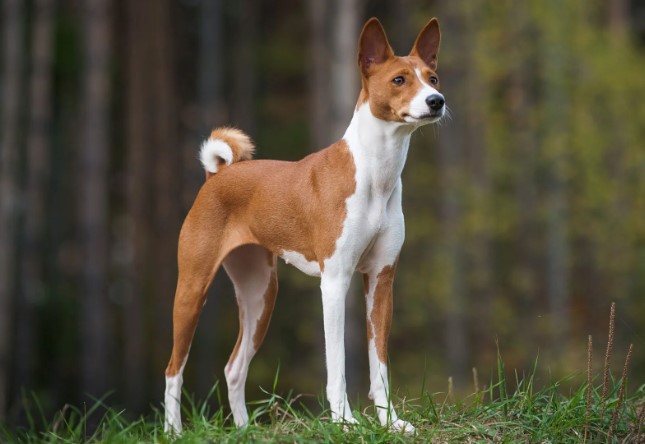
Basenji dogs are an intriguing breed known for their unique characteristics and charming personalities. Originating from Africa, they have a rich history and distinctive traits that set them apart from other breeds. Let’s delve deeper into the world of Basenjis and explore what makes them such special companions.
Introduction
Basenji dogs, also known as the “barkless dogs” or “Congo dogs,” have a long and storied history that dates back thousands of years. They were originally bred in Central Africa for hunting purposes, prized for their agility, intelligence, and ability to work silently. Despite their small size, Basenjis are renowned for their keen senses and natural hunting instincts.
Appearance and Size
Basenjis are medium-sized dogs with a sleek, muscular build and a distinctive appearance. They typically stand between 16 to 17 inches tall at the shoulder and weigh between 22 to 24 pounds. One of the most striking features of Basenjis is their short, fine coat, which comes in various colors such as red, black, brindle, and tricolor.
Temperament and Behavior
Basenjis are known for their independent and spirited nature. They are intelligent dogs with a strong prey drive, which can sometimes make them challenging to train. However, with patience and consistency, Basenjis can be loyal and affectionate companions. They are also highly curious and playful, often entertaining themselves with toys and games.
Training and Socialization
Training a Basenji requires patience and persistence, as they can be stubborn and willful at times. Positive reinforcement techniques, such as rewards and praise, are effective in motivating Basenjis to obey commands. Early socialization is crucial to help Basenjis develop good manners and get along well with other dogs and pets.
Health and Care
Basenjis are generally healthy dogs, but like all breeds, they are prone to certain genetic health conditions. These may include hip dysplasia, progressive retinal atrophy (PRA), and Fanconi syndrome. Regular veterinary check-ups, a balanced diet, and adequate exercise are essential for maintaining the health and well-being of Basenjis.
Living with a Basenji
Basenjis thrive in environments where they have plenty of opportunities for mental and physical stimulation. They enjoy having access to a securely fenced yard where they can explore and play. Basenjis are not well-suited for apartment living due to their high energy levels and need for space to roam.
Basenjis as Family Pets
While Basenjis can make wonderful family pets, they may not be the best choice for households with small children or other pets, especially smaller animals like cats or rodents. Basenjis have a strong prey drive and may instinctively chase smaller animals, which could lead to conflicts or accidents.
Activities and Exercise
Basenjis are active and athletic dogs that require daily exercise to keep them mentally and physically stimulated. They enjoy activities such as hiking, running, and agility training. Interactive toys and puzzle games are also great ways to keep Basenjis entertained and engaged.
Basenji Breeding and Genetics
Responsible breeding practices are essential for preserving the health and integrity of the Basenji breed. Potential health issues should be carefully screened for, and only healthy, genetically sound dogs should be used for breeding. Ethical breeders prioritize the well-being of the dogs and strive to produce healthy puppies with good temperaments.
Famous Basenjis in Pop Culture
Basenjis have made appearances in various forms of media, including literature, film, and television. One of the most famous Basenjis in pop culture is the fictional character “Shango” from the novel “Goodbye, My Lady” by James H. Street, which was later adapted into a film.
Basenji Rescue and Adoption
For those interested in adding a Basenji to their family, adoption is a great option to consider. Many Basenjis are in need of loving homes and can be found in shelters or rescue organizations. Adopting a Basenji not only gives a dog a second chance at life but also provides a rewarding experience for the adopter.
Conclusion
Basenji dogs are a unique and fascinating breed with a rich history and distinctive traits. While they may not be the ideal choice for every household, for the right owner, Basenjis can make loyal, affectionate, and entertaining companions. By understanding their needs and characteristics, you can ensure a fulfilling and rewarding relationship with your Basenji companion.
FAQs About Basenji Dogs:
1. Are Basenjis good with children? Basenjis can be good with children if they are properly socialized and trained from a young age. However, they have a strong prey drive, so supervision is recommended.
2. Do Basenjis bark? Basenjis are known as the “barkless dog” breed, although they can still vocalize through other means such as yodels, whines, and growls.
3. How much exercise do Basenjis need? Basenjis are energetic dogs that require regular exercise to stay happy and healthy. They benefit from daily walks, playtime, and mental stimulation.
4. Are Basenjis hypoallergenic? While no dog breed is completely hypoallergenic, Basenjis have a short coat that sheds minimally, making them a better choice for some allergy sufferers.
5. Are Basenjis easy to train? Basenjis are intelligent but can be independent and stubborn, which can make training a challenge. Consistent and positive reinforcement methods work best with this breed.